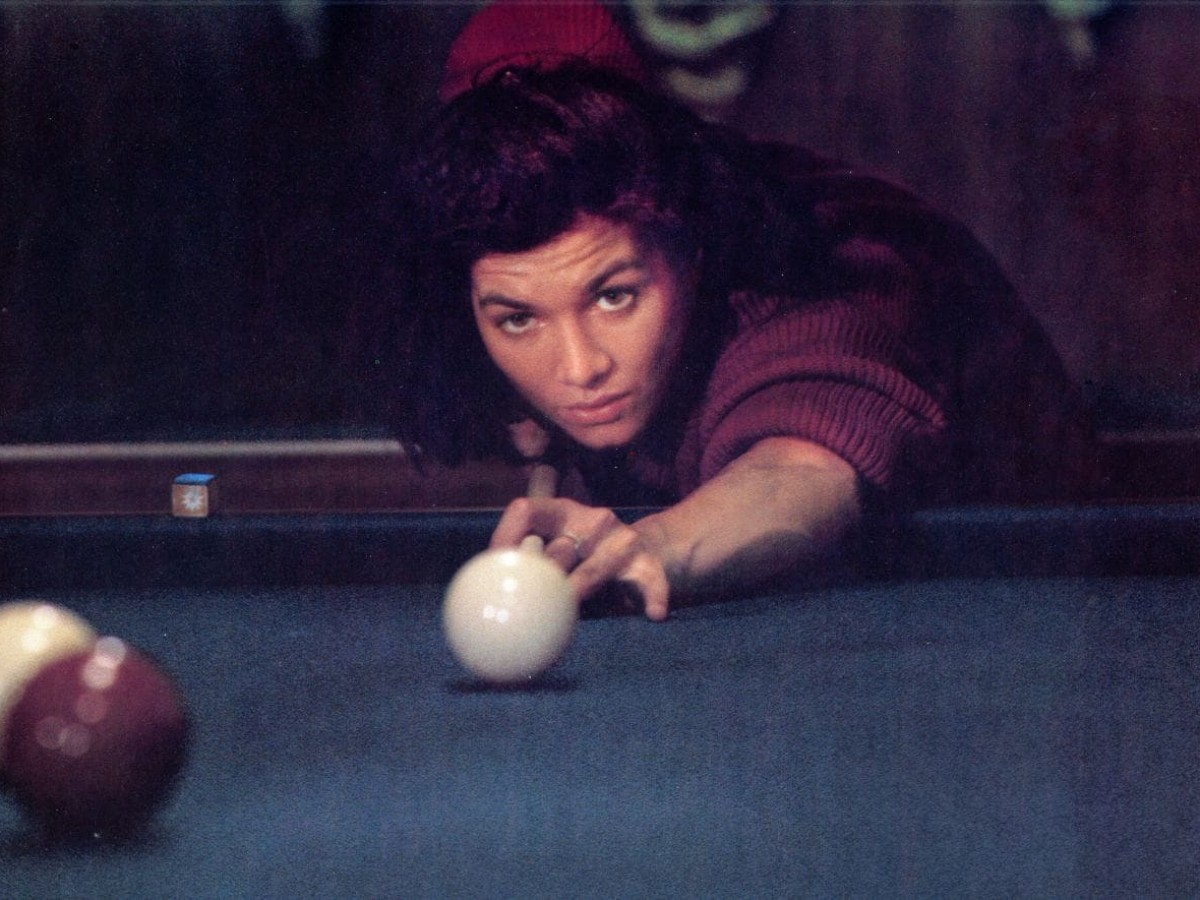Talks with Women Film Pioneers:
Kitty Kino
October 9, 2024
Women directors, screenwriters, editors, cinematographers, costume designers, set designers, and many other women active in the film industry have left their mark on Austrian film and TV. And yet each generation of filmgoers, for lack of an ongoing canonization, must rediscover their names as well as their radical works. While revolutionary women from the film industry long taught elsewhere, the expertise – in addition to the position – of women in the Austrian film industry has seldom been institutionalized and has been (even actively) denied to students. We will bring to the stage women film pioneers – previous guests include Hilde Berger, Susanne Zanke, Käthe Kratz, Elfi Mikesch, Uli Fessler, Lisl Ponger, Angela Hareiter, and Monika Maruschko – for a series of in-depth talks, screen individual films, shed light on their work through film clips, and talk in detail about their life and work over the course of the evening. The talks will be moderated by the next generation of industry insiders. The goal: the exchange of experiences, networking, the passing on of the flame, world revolution – you name it. (Wilbirg Brainin-Donnenberg, Julia Pühringer / Translation: Ted Fendt)
Kitty Kino
As a screenwriter and director, Kitty Kino is among the most important female pioneers in Austrian film and television. After a series of short films in the early 1970s made during her studies at the Film Academy Vienna, her debut feature Karambolage (1983) immediately became an international hit after its premiere at the Berlinale where it was considered a secret audience favorite, and it was later invited to countless international festivals. With her initial training as an electrician, she not only asserted herself in the male-dominated film world, but also chose, for this, her first story, a character who fights, parable-like, against a variety of obstacles in the male-dominated world of billiards. With Die Nachtmeerfahrt (1986), which already addresses gender identity in the 1980s, and Wahre Liebe (1990), more festival success followed. In 1991, she shot Operation Gelungen, making her the first woman to direct an episode of the crime series Eurocops. Alongside her work as a screenwriter, she has also written song lyrics for films, a novel for young adults (Lara und die Insider), conceived and directed plays, as well as sketching out stage and costume designs and writing novels. There is the social Three Magi comedy AKTION C+M+B (1999), which is regularly broadcast on Austrian public television, and the documentary Keyserling – Wissen und Sinn about the philosopher Arnold Keyserling. In 2009, Kitty Kino was awarded the Golden Medal of Merit of the State of Vienna. Outside the film medium, she has increasingly chosen photography as a form of expression and since 2010 has exhibited work in many solo and group shows as well as auctions. With her Nokia 6131 she developed "Pixilism," and published the multi-award winning photo book Kitty Kino Vienna in 2014 and her novel Die kleinste Berührung in 2019. (W.B.-D. / Translation: Ted Fendt)
After the screening of her film Karambolage (1982), Barbara Eder and Julia Pühringer will moderate the talk with Kitty Kino.
Women directors, screenwriters, editors, cinematographers, costume designers, set designers, and many other women active in the film industry have left their mark on Austrian film and TV. And yet each generation of filmgoers, for lack of an ongoing canonization, must rediscover their names as well as their radical works. While revolutionary women from the film industry long taught elsewhere, the expertise – in addition to the position – of women in the Austrian film industry has seldom been institutionalized and has been (even actively) denied to students. We will bring to the stage women film pioneers – previous guests include Hilde Berger, Susanne Zanke, Käthe Kratz, Elfi Mikesch, Uli Fessler, Lisl Ponger, Angela Hareiter, and Monika Maruschko – for a series of in-depth talks, screen individual films, shed light on their work through film clips, and talk in detail about their life and work over the course of the evening. The talks will be moderated by the next generation of industry insiders. The goal: the exchange of experiences, networking, the passing on of the flame, world revolution – you name it. (Wilbirg Brainin-Donnenberg, Julia Pühringer / Translation: Ted Fendt)
Kitty Kino
As a screenwriter and director, Kitty Kino is among the most important female pioneers in Austrian film and television. After a series of short films in the early 1970s made during her studies at the Film Academy Vienna, her debut feature Karambolage (1983) immediately became an international hit after its premiere at the Berlinale where it was considered a secret audience favorite, and it was later invited to countless international festivals. With her initial training as an electrician, she not only asserted herself in the male-dominated film world, but also chose, for this, her first story, a character who fights, parable-like, against a variety of obstacles in the male-dominated world of billiards. With Die Nachtmeerfahrt (1986), which already addresses gender identity in the 1980s, and Wahre Liebe (1990), more festival success followed. In 1991, she shot Operation Gelungen, making her the first woman to direct an episode of the crime series Eurocops. Alongside her work as a screenwriter, she has also written song lyrics for films, a novel for young adults (Lara und die Insider), conceived and directed plays, as well as sketching out stage and costume designs and writing novels. There is the social Three Magi comedy AKTION C+M+B (1999), which is regularly broadcast on Austrian public television, and the documentary Keyserling – Wissen und Sinn about the philosopher Arnold Keyserling. In 2009, Kitty Kino was awarded the Golden Medal of Merit of the State of Vienna. Outside the film medium, she has increasingly chosen photography as a form of expression and since 2010 has exhibited work in many solo and group shows as well as auctions. With her Nokia 6131 she developed "Pixilism," and published the multi-award winning photo book Kitty Kino Vienna in 2014 and her novel Die kleinste Berührung in 2019. (W.B.-D. / Translation: Ted Fendt)
After the screening of her film Karambolage (1982), Barbara Eder and Julia Pühringer will moderate the talk with Kitty Kino.
Idea: Julia Pühringer. Concept and realization: Wilbirg Brainin-Donnenberg and Julia Pühringer in collaboration with FC GLORIA – Feminismus Vernetzung Film, and Drehbuchforum Vienna

